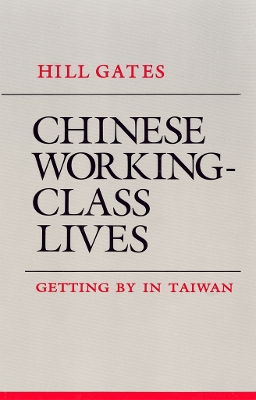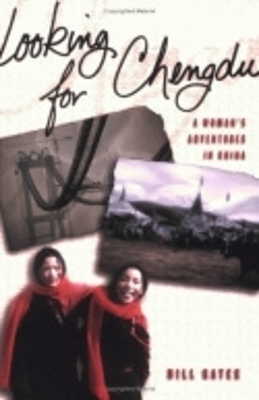The Anthropology of Contemporary Issues
2 total works
Taiwan’s working class has been shaped by Chinese tradition, by colonialism, and by rapid industrialization. This book defines that class, explores that history, and presents with sensitive honesty the life experiences of some of its women and men. Hill Gates first provides a solid and informative introduction to Taiwan’s history, showing how mainland China, Japan, the convulsions of twentieth-century wars, and the East Asian economic expansion interacted in forming Taiwanese urban life. She introduces nine individuals from Taiwan’s three major ethnic groups to tell the stories of their lives in their own words. The narrators include a fortuneteller, a woman laborer, and a retired air force mechanic. A former spirit medium and a janitor are among the others who speak.
For decades, anthropologist Hill Gates had waited for an opportunity to get to know the citizens of China as she had done in Taiwan—face to face, over an extended period of time. At last in the late 1980s she set out on an excursion to Sichuan Province. That visit was the first of many she would make there on a remarkable double adventure: to gain a deeper understanding of Chinese women and to complete a difficult passage in her own life. Looking for Chengdu is her memoir of these trips. By turns analytic, witty, and bittersweet, Gates's observations on contemporary China are enlivened by a keen eye for the oddities of human behavior, including her own.The vast, inland province of Sichuan was the birthplace of the Chinese economic reforms of the 1970s, and is now speeding from the sixteenth to the twenty-first century. Was its economic boom transforming women's lives, Gates wondered? After a generation of socialist rule, would women risk the challenge of entrepreneurship? A feminist, she was especially curious to learn what Chinese of both sexes defined as women's rights.Gates traveled—by boat, train, bus, car, bicycle, and foot (her preference)—across the spectacular countryside, gleaning insight into China's massive bureaucracies from her experiences on an obligatory vacation, in a Tibetan dance-hall, and at a shouting match in her Chengdu home. She met dozens of hard-working, stylish women running family firms, and crossed paths with scholars and sailors. Her book is rich in anecdotes and compelling moments, from her journey through mountain villages in search of five thousand women with bound feet to low-voiced conversations about the Chengdu equivalent of the events at Tiananmen Square.A fascinating glimpse into the deeply personal vocation of anthropology, Gates's memoir will change the way readers think about the Chinese people.

